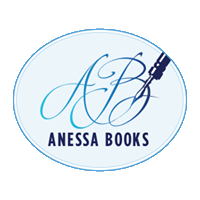 It has been said (I thought by Nora Roberts, but I recently saw it attributed to another author) that you can’t edit a blank page. In other words, sit down and start writing the damned story!
It has been said (I thought by Nora Roberts, but I recently saw it attributed to another author) that you can’t edit a blank page. In other words, sit down and start writing the damned story!
If you’re a plotter like me, you might be tempted to not only plot the major turning points of your story, but every single scene. You might feel compelled to not only fill out your favorite character sheets, but then write pages of backstory about each of your main characters.
But if this is all you’re doing, you might just be putting off actually sitting down and writing the actual story—you know, scenes, description, dialogue, action…
Don’t worry if what you write isn’t perfect. Your words are not set in stone. You won’t even have to retype the entire chapter after you’ve made some changes like authors did when all they had was a typewriter.
The first draft of nearly every book—even Nora Roberts’, who has literally written hundreds of books—is what is known as the POS (pile of shit). This is fine. Some would argue that this is good.
You need to write the story so that you know what you have and can fix it. You need to put in backstory. But is there too much? You can take it out later and sprinkle bits and pieces in elsewhere. You need to write actual dialogue—both internal and external—in order to truly bring your characters to life. If they haven’t spoken, thought, or moved you can’t really get to know who they are, no matter how much you plan.
**Sidenote: The most amazing thing for any author to see is your characters coming to life, establishing their own personalities, and surprising, even you, their creator, with what they say and do. They will, you know. No matter what you do or think you know, these people will do or say something you had never anticipated. But the only way you can give them the opportunity to do so is to write the story.**
This is a lot easier for authors who write by the seat of their pants without planning. They know that in order to have a story, they need to dive right in and get writing. The trick for this type of writer, is to not stop writing to edit your work until it’s “perfect” before moving on to the next chapter. If you do, you’re never going to get anywhere because it’s never going to be perfect. That’s okay! Keep writing. By the time you get to the end, you’ll be able to go back and you’ll know exactly how to fix that wobbly beginning because by then you’ll know your story and your characters so much better.
It doesn’t matter if you dump information, it doesn’t matter if your grammar or punctuation isn’t perfect. These are things you can fix later. It is essential that you make the leap—put pen to paper or fingers to keyboard and just start writing. Write that POS so that you can go back and edit it later.
